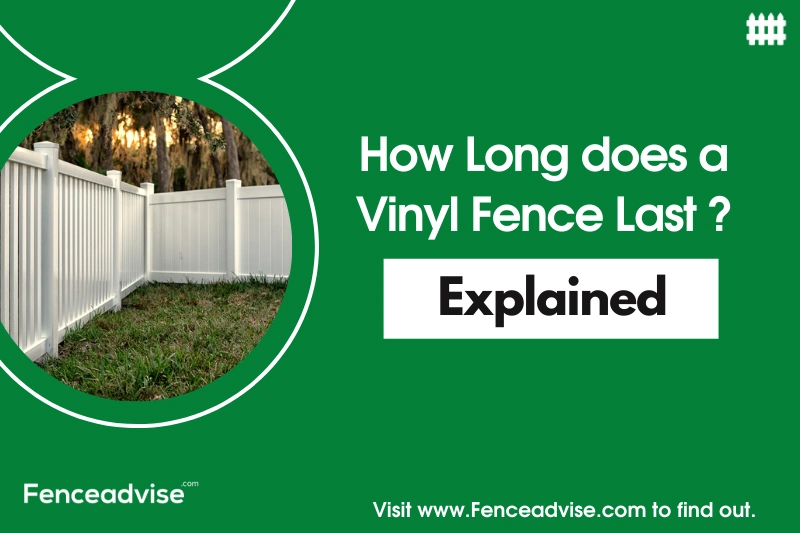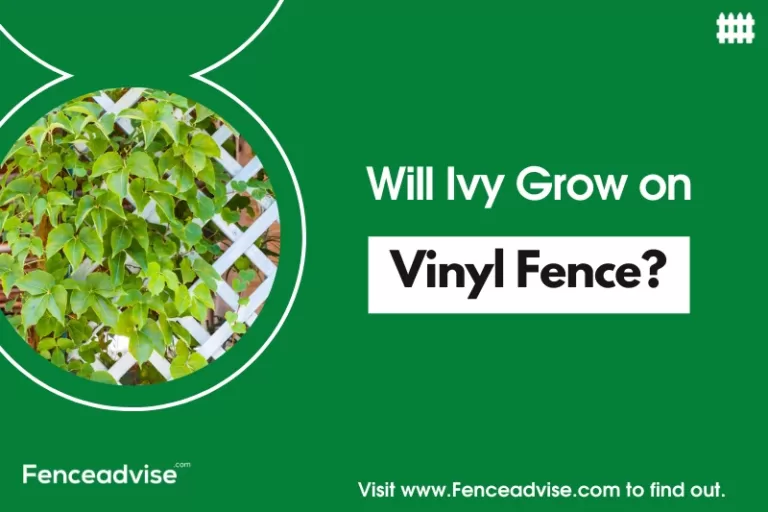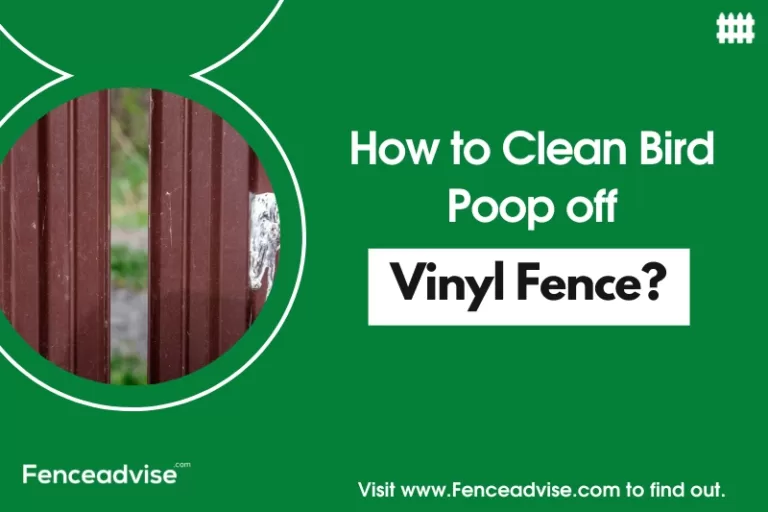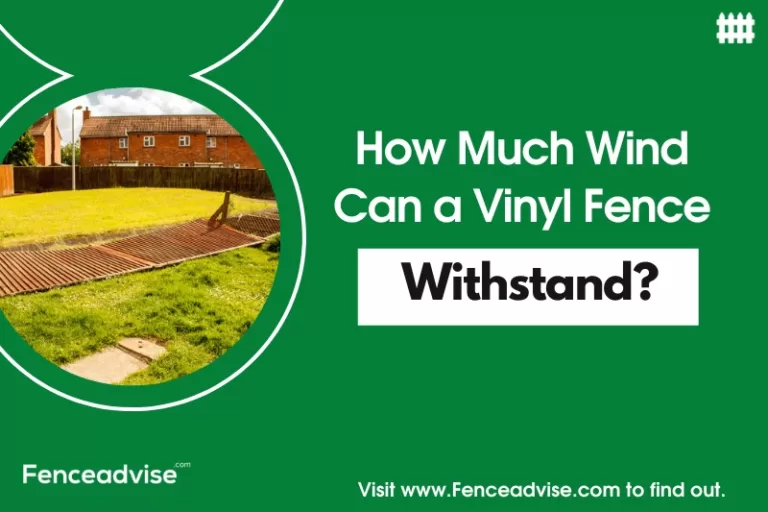We include products we think are useful for our readers. If you buy through links on this page, we may earn a small commission. Read our affiliate disclaimer here.
As a vinyl fence owner, I can attest that most vinyl fences last around 20 years. Over time, the material might lose its color and develop unattractive formations. Chemical stains, often caused by environmental factors, can lead to the absorption of certain toxic chemicals.
While vinyl is touted as durable by manufacturers, it may not match the longevity of some metal or aluminum fences, which can last over 25 years.
However, some metal fences might rust or corrode after just a few years. It’s worth noting that using thicker plastic in vinyl fencing can enhance its strength. In my experience, proper maintenance and awareness of these factors contribute to maximizing the life of a vinyl fence.
Why Does Vinyl Fence Last Longer?
Zippity Outdoor Products
6 used from $48.58
- Strength: Vinyl fences are known for their thickness, preventing easy breakage.
- Durability: Resistant to hurricanes, rust, saltwater, and ice, enhancing its longevity.
- UV Protection: The topcoat on vinyl provides an additional layer of defense against sun damage.
- Aesthetic Appeal: Capable of maintaining a fresh look for up to two decades without significant wear.
- Low Maintenance: Requires minimal care, with occasional panel replacements after heavy storms being the primary upkeep.
- Material Thickness: Vinyl fencing can be made even stronger by using thicker plastic.
- Minimal Breakage: The robust nature of vinyl prevents easy breakage, ensuring a longer lifespan.
- Longevity: Vinyl fences can last for about 20 years, outlasting some other fencing materials.
- Environmental Resistance: Vinyl fences resist chemical stains, absorbing fewer toxic chemicals over time.
Longevity of Vinyl Fences
| Color | Longevity | Maintenance Tips |
|---|---|---|
| White | About 5 years | Provide shade and regular cleaning with a vinyl cleaner |
| Black | Approximately 10 years | Fading over time due to sun exposure |
| Green | Around 15 years | Fading in direct sunlight, choose darker colors to avoid heat absorption |
The longevity of vinyl fences is influenced by factors such as color, environmental conditions, and maintenance.
In contrast, the natural color of vinyl fences, when properly maintained, can endure for about 20 years.
Regular cleaning with a vinyl cleaner helps preserve the material’s appearance. Factors like UV rays, soil contact, and extreme heat can impact the life expectancy of vinyl fences.
Investing in high-quality materials, proper installation, and routine maintenance can extend the longevity of vinyl fences, making them a durable and attractive fencing option.
Get Matched with Local Vinyl Fence Professionals
Answer a few questions and we’ll put you in touch with pros near you.
How Long Does Vinyl Fence Last in Florida?
The lifespan of my fence is influenced by the challenging weather conditions. In this tropical climate, my vinyl fence is expected to last up to 15 years.
The intense sun exposure can lead to some fading and wear, and occasional rusting is a concern. To combat these issues, I stay proactive in maintaining my fence. Regular cleaning, especially after storms or heavy rain, helps prevent potential damage.
Additionally, I apply protective coatings to shield against the sun’s UV rays. Being attentive to the unique conditions in Florida ensures my vinyl fence remains sturdy and visually appealing throughout its expected lifespan.
Please read Florida fence laws here.
fence advise editor’s choice
Zippity Outdoor Vinyl Fence
How Often Does Vinyl Fence Need to be Replaced?
The life of vinyl fencing is determined by two factors: the type of posts used to support it and how well it’s cared for.
While most California homes use 4×4 or 6×6 beam posts in their fencing, these posts rot quickly in coastal regions where weather conditions are not well controlled (e.g., when they’re exposed to airwaves from the ocean).
For this reason, many fences built along the coast without proper installation will need replacement before 30 years have passed.
In most areas of the country, however, vinyl is expected to last between 15 and 30 years. This means that it’s often possible to recoup a good amount of the cost by reselling the home when replacement time comes.
It’s worth noting, however, that if you’re going to sell your home in less than five years, you’ll almost certainly come out ahead by paying for the replacement.
Zippity Outdoor White Vinyl Portable Puppy Dog Fence Kit
4 used from $64.51
Does Vinyl Fencing Last Longer than Wood?
Vinyl can last significantly longer than wood. It can last anywhere between 15 and 30 years (30 is only if the fence is properly maintained).
Moneywise, vinyl will normally cost less than wood, but it still requires more upkeep. It’ll need to be cleaned, considered waterproofing, and even painted for color, So costs will vary.
Wood on the other hand does not require as much attention so long as one doesn’t want new or “better” looking boards on their border or siding.
Wood fencing will last between five to seven years. If you’re in a place that has harsh weather conditions, you might want to consider getting vinyl fencing, because it will last longer.
Which is Better: Vinyl or Wood?
Wood fencing lasts between 5 and 7 years and in some cases even less than that. Vinyl fencing lasts between 15 and 30 years, but it will cost more than wood because of its qualities.
For example, vinyl siding is waterproof, so you don’t need to pay for waterproofing or painting. You can leave your siding white or black until the color fades away.
Wood on the other hand is not as good in weather conditions as vinyl is, which means you’ll have to paint it every few years or clean it.
Find top-rated fence installers in your area
What are the Signs of Damage?
As a vinyl fence owner, recognizing signs of damage is crucial for maintaining the fence’s integrity. Here are indicators I’ve learned to watch for:
- Fading Color: If I notice the vinyl losing its color, it’s a sign of potential damage or aging.
- Discolored Patches: Water damage can cause discolored spots. Addressing these promptly prevents further deterioration.
- Small Holes: Tiny holes can occur, possibly due to impacts or wear. Quick patching helps maintain the fence’s appearance.
- Sagging Between Panels: If panels start sagging, it indicates misalignment or weakened connections, which I fix promptly.
- Deterioration at Post Bottoms: Rotting at post bases is a concern. Regular checks and immediate replacements prevent further damage.
- Paint or Dirt Marks: These suggest previous repairs. Being aware helps assess the fence’s overall condition.
- Chips or Cracks: Addressing these promptly is vital to prevent them from worsening over time.
- Rust Around Posts or Hardware: Sanding rust spots helps preserve the fence’s aesthetic and structural qualities.
- Leaks Around Posts: Signs of rot should be promptly addressed with post replacement.
- Bumps or Bulges: These can result from debris or moisture and should be cleaned to maintain the fence’s appearance.
Read More:
- Can weed eater damage your vinyl fence ?
- How much wind can a vinyl fence handle ?
What are the Factors that can Shorten the Life Expectancy of your Vinyl Fence?
- Sun and Ultraviolet Rays: Continuous exposure to sunlight and UV rays can lead to brittleness, cracking, and color fading. Regular checks for signs of weathering help in identifying potential issues.
- Soil Contact: Ground contact over an extended period weakens vinyl, causing it to break. Being mindful of soil conditions and ensuring proper installation minimizes this risk.
- Salt and Chloride Exposure: In coastal areas or where salt is prevalent, vinyl can deteriorate due to exposure to chloride. Regular cleaning and protective measures are crucial in such environments.
- Heat: Excessive heat can cause warping, melting, or discoloration. Monitoring temperature changes and employing shading solutions contribute to vinyl fence longevity.
- Vinyl Fence Manufacturers: Opting for reputable manufacturers ensures high-quality materials, reducing the risk of premature wear and tear. Researching and choosing trusted brands have been pivotal in my fence’s durability.
- Installation Quality: Proper installation, including the use of appropriate posts and support structures, plays a significant role. Ensuring a sturdy foundation and following manufacturer guidelines enhances the fence’s resilience.
- Maintenance and Yearly Inspections: Regular maintenance routines, such as cleaning and inspections, are essential. Identifying wear or damage early allows for timely repairs, preserving the fence’s overall condition.
- Normal Wear and Tear: Factors like foot traffic, pets, and impacts from objects can cause scratches. Swift repairs and addressing wear spots help extend the fence’s life.
- Animal Attacks: Animals, including rodents, bugs, or termites, can pose a threat. Vigilant monitoring and preventative measures safeguard against potential damage.
- Loose Screws or Nails: During installation, ensuring tight connections between panels and posts prevents issues like blisters. Regular checks for loose components maintain the fence’s structural integrity.
Zippity Outdoor Products
6 used from $48.58
At FenceAdvise, we pride ourselves on being the most reliable and trustworthy source of fencing information. Our articles are based on only the highest quality sources, including peer-reviewed studies, to ensure that our readers always have access to accurate information. Read more about our Editorial Guidelines, About Us.








